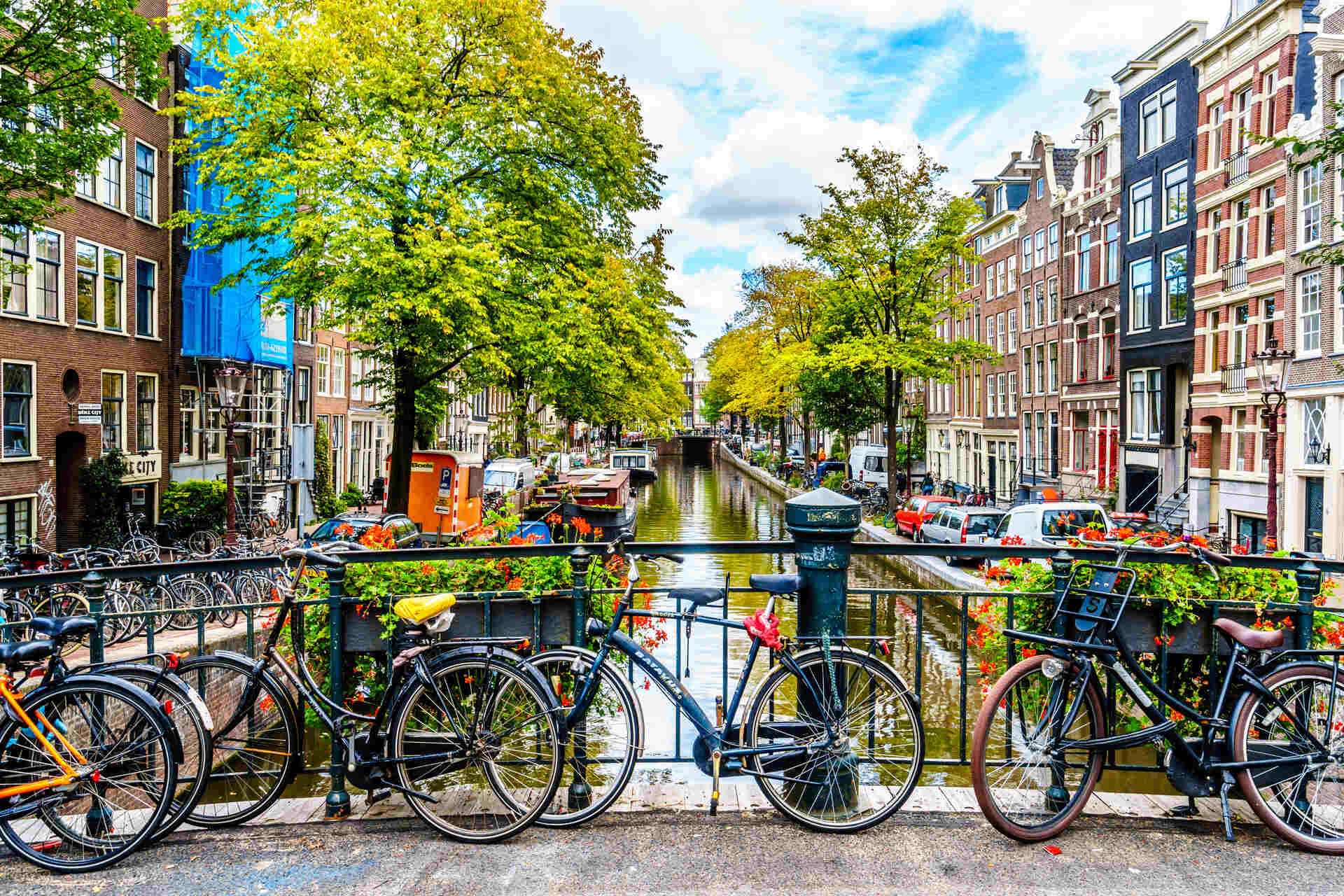

Moving to a new country can be an exciting adventure, but it’s also natural to feel a little nostalgic about leaving your old life behind. Luckily, coping with nostalgia doesn’t have to be as difficult as it might seem with some useful tips. There are several ways to cope with these feelings and make the most of your new life abroad.
Nostalgia is a powerful emotion that can be both positive and negative. It can fill us with happy memories of times gone by or trigger feelings of sadness and longing for what we once had. If you’re moving internationally and booking a professional international moving company, you may be feeling a mix of both types of nostalgia. On the one hand, you may be excited about the new adventure you’re embarking on. But on the other hand, you may be feeling sad about leaving your home and everything familiar behind.
What’s the Link Between Relocation Depression and Nostalgia
A deep and pervasive yearning for individuals, places, and stuff that are no longer a part of your life can be sparked by anything. Many things can cause you to feel nostalgic, from a brief glimpse of a friendly figure to the melody of a long-forgotten tune to a faint scent that tugs at your memory, especially when living overseas. However, you can’t always rely on those dazzling photographs.
You see, memories are only a collection of fragments. You’re left with a fragmented vision of the past as the sands of time wash them away. Most of the time, the bits that are still there aren’t totally true. Your brain has the tendency to give your memories Instagram-worthy filters, making them softer and more attractive than the actual experience.
Imagine you are cycling alongside the river. The calming rush of water is accompanied by a chorus of frogs, and the evening breeze carries the aroma of rain as it cools your face. These feelings bring up a fleeting recollection of riding past a river on the way back from high school and having nothing to do but eat something and escape to your bedroom for some quiet. You lament, “If only life were all that easy now.” The school was considerably more straightforward than work and the rest of my responsibilities.
What you may not recall is:
- Recurring disagreements with your parents,
- Challenges in maintaining good grades so you can get a scholarship to a university far from home,
- The hurt of your first breakup.
Why does that matter, then? What’s wrong with cherishing happy memories? Usually nothing. However, getting sucked into an idealistic rewrite can lead you to contrast your current situation with a time in the past that you didn’t particularly love. This longing may eventually contribute to mental suffering, including depressive symptoms.

Loneliness and Loss
When you think of family members and friends, both those you haven’t seen in a while after international moving and those you don’t see very often, nostalgia frequently comes to mind. Staying in a place where you have to deal with language barriers and other adjustment difficulties can be pretty challenging. This nostalgia could feel even more difficult if you lost a family member or a beloved friend while you were in a foreign country. It could be like you never truly received closure.
Anxiety and grief can also be brought on by anticipatory nostalgia, which is a yearning for somebody or something you haven’t yet lost. During a peaceful day with your closest buddies or a romantic weekend spent with your significant other, you could experience this feeling. Even if you’re having a good time in one of the expat communities, you realize that things won’t stay the same every day and that you’ll miss them when they’re gone.
Worry and Rumination
Whether you have a tendency to worry or frequently find yourself focusing attention on negative and unpleasant ideas, nostalgia may cast a long shadow. This can happen while you’re overwhelmed with preparation for movers, deciding what belongings to keep and even who to notify about the move.
A study showed possible detrimental consequences of homesickness in a group of more than 200 adults. The findings showed that those who worried more frequently also expressed more intense feelings of despair and anxiety after discussing their experiences.
Sadness or Regret
When you feel that the present isn’t good enough, reflecting closely on the distant past can bring on depressive symptoms. Even shame about disappointing loved ones (or oneself, if, for example, you’re relocating without a job) by making commitments you couldn’t keep may be one of your depression’s symptoms.
Nostalgia is a mixed emotion, and it can have both negative and positive aspects. As a result, people could intensify their attention on the past and then become fixated on unfavorable ideas. You might eventually start to experience sadness or perhaps mild depression. Further nostalgia may result from this anguish.
Additionally, the presence of depressing feelings can provide still another lens to the past. In other words, if you often experience nostalgia during times of depression, your recollections might make you feel even worse.

What Are Some Useful Tips That Can Help You When Coping With Nostalgia
Although it’s often categorized as a feeling, nostalgia is actually a complex emotion that can be both positive and negative. On the one hand, it can provide a burst of happy memories that make you feel good about the past. On the other hand, it can leave you feeling sad and longing for a time that is gone.
This is especially common with people who are moving overseas – realizing all the benefits of the move can evoke happy and thrilling feelings, but having to deal with packing service or even a last-minute move can be just too overwhelming.
Whether you’re experiencing positive or negative nostalgia, some useful tips can help you cope with this emotion and make your move easier.
Maintaining Perspective
You may reflect on enjoyable times spent with your pals and feel distant from others in the future. Or you can say to yourself, “I’ll never live in a wonderful home again,” when you recall a beloved flat. Try digging a little deeper into your recollections to get a more accurate image of the past rather than letting it influence you. Also, you can always stay in touch with your loved ones – nowadays, it’s easier than ever, even when relocating across the world.
Look for Satisfying Friendships
You can combat feelings of loneliness when nostalgia causes you to crave past loved ones and friends by turning to the significant people in your life. The links that once mattered so much might not be replaced by new relationships. But they can also serve as a reminder that you actually have people who love and care about you and that people value you just as much as you appreciate them.
It’s also vital to seize the opportunity to connect with the individuals you miss the most. Even though you’re not moving in with friends, you can discover that your buddies have completely changed, just like you, over time. Time changes practically for everyone. Even so, you can still get in touch and possibly even share something new.
Practice Mindfulness
When nostalgic thoughts cause stress and rumination and send your mood into a tailspin, it may be helpful for you to practice mindfulness. You can remind yourself that any unfavorable emotions you may have now are only fleeting thoughts that have no influence over your life by practicing mindfulness, which is the deliberate focus of your consciousness on the present moment.
You could have pleasant memories of your child’s first actions and words in a new city and long to be able to take them up and read them a bedtime tale. If you find yourself lamenting those bygone times, try reinterpreting them.
Finding deeper significance in the past can also be accomplished by staying with your memories and whatever ideas they elicit. Utilizing your nostalgia can assist you in cultivating gratitude for significant life experiences or people who actually influenced your life rather than making comparisons between “today” and “then.”
If you need some additional tips, you can check how to practice mindfulness and handle relocation stress in the best possible way in the following video.
Should You Seek Support When You Are Feeling Down?
When nostalgia causes enduring emotional suffering, a mental health practitioner can provide support even if they are unable to identify nostalgic depression. Your vitality is frequently impacted by depression, not to mention how you interact with other people. When dwelling on memories of the past creates difficulties in succeeding in the present, speaking with a professional is always a wise decision.

Is There an Upside to Feeling Nostalgic?
Nostalgia isn’t always a bad thing. Besides making you think about how you’re going to live abroad or even move efficiently, it can have many positive effects on people. In fact, specialists have linked it to a number of advantages of mental well-being, including:
- A more robust and uplifting sense of self – Your personality and sense of self are shaped by the events throughout your life. You can see how you’ve changed over time by reflecting on the past.
- Purpose in life – Even if things didn’t go exactly as planned, thinking back on significant achievements and life-changing situations can remind you of life’s worth and significance.
- A sense of connection – Nostalgia may occasionally increase feelings of loneliness, but according to a 2020 study, it can also make you feel more socially connected. For instance, remembering the individuals you cherish can help you realize how important those connections are to you.
- Inspiration and drive – Remembering “better” times may inspire you to pursue your goals and alter the situations that aren’t making you happy, assisting you in finding that contentment.
So, considering all these positive sides, you don’t always have to be worried about feeling nostalgic. After all, when you avoid all the relocation mistakes, you can see how a culture shock can benefit you and help you learn numerous different things.
Don’t Let the Nostalgia Stop You From Moving Abroad
Nostalgia is a complex emotion that can be both positive and negative. If you’re feeling nostalgic, you can still cope with this emotion with some helpful tips. Try acknowledging your feelings, understanding why you’re feeling nostalgic, talking to someone who understands what you’re going through, leaning into the positives, using nostalgia as motivation, and creating new traditions.








